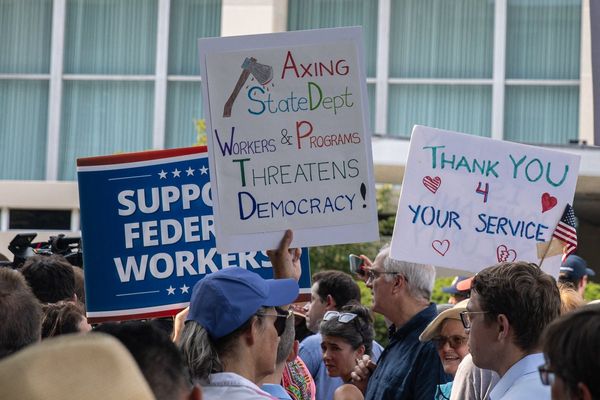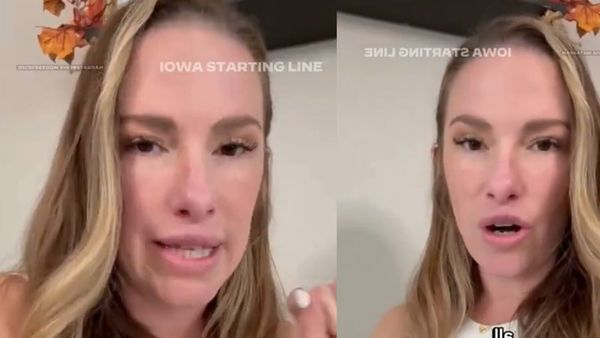More than a dozen private opioid treatment services in Queensland and New South Wales are at risk of closure because of changes announced in last month's federal budget, say clinic operators.
If the 17 facilities shut, they say it would displace more than 4,500 patients with opioid dependence, potentially plunging some into illicit drug use and crime to stave off withdrawal symptoms if they cannot get care elsewhere.
The potential crisis is a result of government changes to the Opioid Dependence Treatment Program (ODTP) that mean patients will be able to buy medicines – including methadone or buprenorphine – through the Pharmaceutical Benefits Scheme (PBS) at some community pharmacies.
Currently people requiring the medication attend state-run facilities, some GPs or private pharmacies and clinics.
Federal Health Minister Mark Butler said "for too long" people seeking help for opioid dependence have been "treated as second-class citizens" and "locked out" of getting their medication affordably through the PBS.
"Once the change comes into effect, Australians seeking help for opioid dependency will be able to buy their treatments from pharmacies, paying a PBS co-payment instead of uncapped private prescription fees," Mr Butler said.
However, private pharmacies and clinics in Queensland and New South Wales say their role in treating up to 10 per cent of the nation's ODTP patients has been overlooked and their revenue will be slashed when the changes come into place on July 1.
While efforts to make the medications cheaper have been universally applauded, there are not enough state clinics, GPs and pharmacies to take on thousands of extra patients.
Pharmacist Andrew Pfeffer owns a specialist drug treatment clinic at Logan, in south-east Queensland, which supports around 210 people living with opioid dependence.
He said about 60 per cent of the patients, including a top business executive recovering from surgery, became addicted to prescription opioid painkillers. Others use illicit drugs like heroin.
They pay the clinic $42 a week for opioid substitution medications and unlimited bulk billed appointments with health care workers located on site.
"Under the new system a general patient would pay $30 a month for care. If you hold a concession card or health care card, you'd pay $6 or $7 a month," Mr Pfeffer said.
"Which is a fantastic investment in care and a much-needed change to see equity brought to such a marginalised cohort."
But he said it will destroy the income of private dispensaries and clinics – like his and about 16 others – filling gaps in care in New South Wales and south-east Queensland.
"1st of July we will be closed," Mr Pfeffer said.
"Once we close the patients will be left to their own devices – there will be no treatment for them at this service."
State-run drug treatment clinics and some accredited GPs also prescribe opioid replacement medications, but in most places the services are already full.
"There is nowhere else to go," Mr Pfeffer said.
The pharmacist is warning of "imminent disaster" for the wider community and patients, many of whom have addiction issues stemming from trauma.
"They'll be forced, without an option, onto the illicit market which will result in an increase in crime, petty crime, and property theft, acute presentations to emergency departments, intoxication and a rise in viral infectious diseases," Mr Pfeffer said.
He said closures would also remove a secure environment for about 40 GPs and nurse practitioners who specialise in the "tricky" field of prescribing replacement medications for illicit opioids.
Mr Pfeffer said the federal government failed to properly consult with the operators.
"The only option to avoid Armageddon is for the Commonwealth to delay the implementation and allow a proper consultation process to ensure that no patient is left behind and no community is upset," Mr Pfeffer said.
'People will die from it'
Sam* has spent much of his life in and out of jail with a chronic addiction to heroin and Oxycodone.
"I had a wild childhood, I was a street kid, in and out of boys' homes, jail, just had a hard childhood. Turned to drugs, it went from there."
Now aged in his 40s, he said starting daily methadone treatment through a non-PBS pharmacy about 10 years ago has saved his life and helped repair his relationships.
"I've been out of jail for a long time now, I've actually got myself together — I've got a house, I'm doing well," Sam said.
The Newcastle resident said if clinics close "people will die from it".
"If they do this, they're going to have a big epidemic," he said.
"Heroin addicts, or opiate addicts, you can't go through a day without it, you will do anything to get it,."
Kurt Strassmeir owns the Newcastle pharmacy that treats Sam and about 350 other patients recovering from addictions to heroin and other opiates.
"We see the patients come in at their worst point in their lives and to see them after a couple of months turn their lives around, keep their families together … it is quite rewarding.
"And to see all that work come undone within six weeks is devastating," he said.
The pharmacist said the goal of the new policy is "fantastic", but the private facilities have "slipped through the cracks".
He called on the federal health minister Mark Butler to intervene.
"We need to keep our doors open and that requires Mr Butler's immediate attention to fix and solve this crisis," he said.
Clinics in Sydney, Newcastle and south-east Queensland at risk
Debbie Seidler is the co-owner of Clinic 36 in central Sydney, which has been dispensing medication to people with opioid addictions for more than 30 years.
She said the impact on patients will be "catastrophic" if the changes are implemented next month and the facility has to close.
"To think that, in four weeks' time, they would possibly have nowhere to go and get dosed is frightening and not what anybody would want," Ms Seidler said.
Her fellow owner, Keith Roberts, is a drug addiction specialist who worked in Kings Cross during the heroin wave in the 1990s.
"This change has not been properly thought through, our patients need proper care and respect and somewhere to be treated," Dr Roberts said.
Mr Pfeffer and other clinic owners have written to the health minister, the prime minister, MPs and senators.
"I note that most of the clinics are located in Labor Party electorates, including seats held by senior cabinet members.
"Following the closure of these clinics in four weeks' time, there will be a sharp and sudden rise in illicit opioid use as patients are dislodged from their treatment."
The health minister said some patients have been paying out-of-pocket private prescription fees of up to $150 a week.
"That is a huge impost for people who are dealing with very substantial health issues, many of whom are on income support," Mr Butler told the ABC.
"I am working with the Queensland and New South Wales governments on a transition package that will ensure these clinics have a glide path that ensures as far as possible they are able to remain open.
"I make no apology for putting this medicine on the PBS, but I am very keen to make sure these clinics, which offer a range of important services beyond the supply of medicines, are able to keep operating and continue to provide those services."
Advocate says more time is needed for implementation
CEO of Queensland Injectors for Advocacy and Action (QuIVAA), Emma Kill, said the peak body "applauds" the government's move to make the "life-changing and life-sustaining medications" more accessible under the PBS.
But she said the implementation "does require further time to ascertain the full impacts on private clinics and their patients".
"A breakdown in continuity of care for this population can have serious and far-reaching consequences," she said.
Ms Kill said there are limited alternative care providers.
"The system in Queensland is already overburdened and stretched beyond capacity," she said.
Deputy CEO of the NSW Users and AIDS Association (NUAA), Charles Henderson, also welcomed "long overdue" efforts to make medicines cheaper.
"In relation to the private clinics; we support the ongoing and current efforts at finding solutions, and much is in discussion and underway along the lines of making sure supply to clients is maintained," he said.
Both Queensland Health and NSW Health highlighted the benefits of the reforms, but alluded to implementation issues.
"There are significant challenges and complex pressures on the delivery of opioid dependence treatment (ODT), not just in Queensland, but throughout Australia," a Queensland Health spokesperson said.
"As such, we are advocating for a transition period that can support patient safety and continuity of care as well as allow services to adapt to these announced changes."
A NSW Health spokesperson said the department "recognises the implementation changes" and is working with the Commonwealth, service providers and peak bodies "to ensure patients receiving opioid treatment continue to receive the care they need".
*Name has been changed to protect privacy.
For information on treatment options in Queensland call the 24/7 drug and alcohol service ADIS on 1800 177 833.
For help in New South Wales call PeerLine on 1800 644 413 or head to the website.







